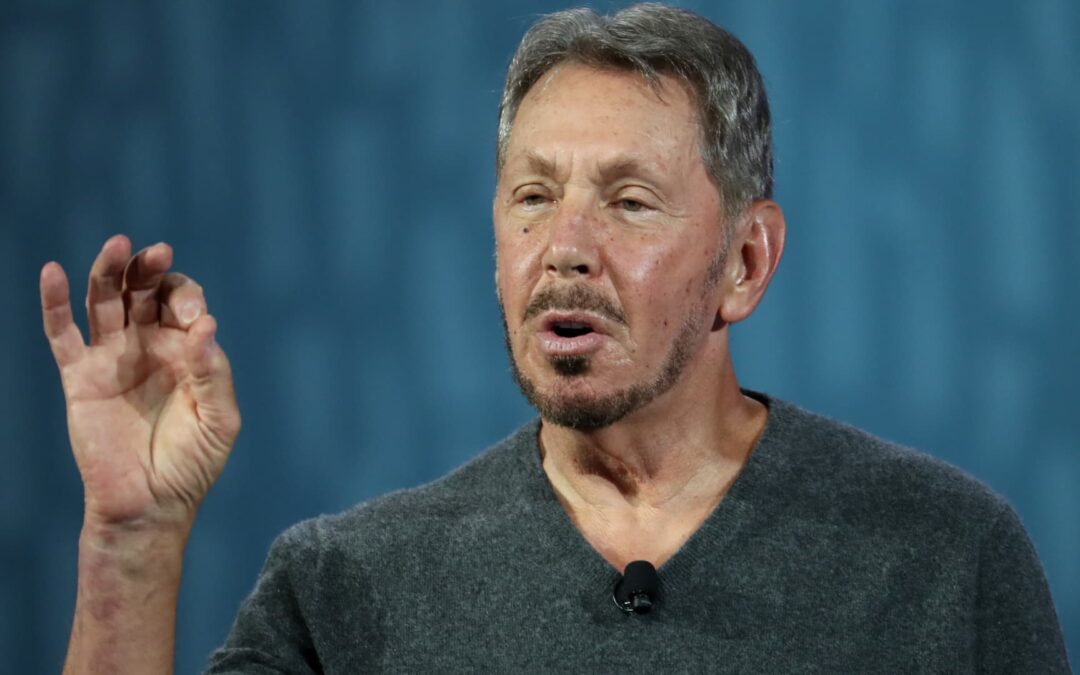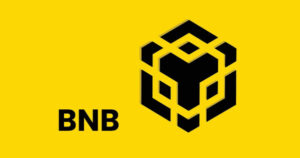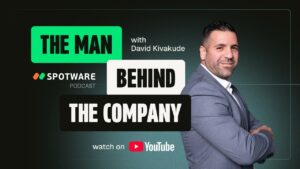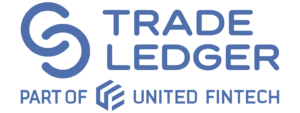A version of this article appeared in CNBC’s Inside Wealth newsletter with Robert Frank, a weekly guide to the high-net-worth investor and consumer. Sign up to receive future editions, straight to your inbox.
Larry Ellison built the world’s second-largest fortune by holding on to his Oracle shares over nearly five decades of ups and downs. At the same time, he’s spent billions to fund his philanthropy, vast real estate holdings, sports investments and his son’s fast-growing media empire.
How does he manage to spend so much while selling so little?
A close look at the Oracle chairman’s finances and shareholdings reveals a fortune built on mountains of leverage and risk, allowing him to borrow against his shares and raise cash without giving up shares or control. At a time when many tech CEOs are following their wealth managers’ prudent advice to “take money off the table” and diversify through share sale programs, Ellison represents a triumph of old-school, go-for-broke wealth creation, even at the age of 81.
“Ellison does seem to stand out, not just for his wealth but for the sheer size of his pledged shares,” said Michael Sury, associate professor of practice in finance and managing director for the Center for Analytics and Transformative Technologies at the University of Texas at Austin.
According to SEC filings, Ellison owned 1.16 billion shares of Oracle stock as of July, representing 41% of the company’s total outstanding shares. His individual share ownership is far and away the largest of any of the top 10 tech billionaires. Elon Musk, for instance, owns less than 20% of Tesla, while Mark Zuckerberg owns about 14% of Meta shares and Jeff Bezos’ stake in Amazon is down to about 8% of shares outstanding after selling more than $18 billion worth in the past two years.
Ellison has sold Oracle shares over the years, but mostly to exercise options and pay taxes. According to Smart Insider, Ellison has net a total of $5.1 billion from selling shares – representing a fraction of his stake, now worth over $350 billion. The sales included $900 million of shares he sold in 2001, right before the stock plunged on a disappointing earnings report, which sparked an insider trading lawsuit and eventual settlement.
Oracle has also done its part to turbocharge Ellison’s equity stake. According to Barron’s, Oracle’s share repurchase program has reduced the number of outstanding shares by 36% over the past 15 years. The drop in outstanding shares has boosted Ellison’s stake from 23% of outstanding shares to 41%, even though his number of shares has remained stable.
Still, Ellison has continued to spend record sums on real estate, sports, collectibles and other assets. His personal empire includes dozens of luxury properties, the Indian Wells tennis tournament, the Hawaiian resort island of Lanai, a collection of vintage fighter jets, a 288-foot mega-yacht and the Eau Palm Beach Resort & Spa in Manalapan, Florida, which he bought for $277 million last year. The purchase came after he paid $173 million for the 62,200-square-foot mansion in Manalapan that marked the highest-ever sale price at the time for Florida real estate.
Ellison has also funded a vast array of private companies. He invested in Elon Musk’s purchase of Twitter, now called X, offering Musk “a billion or whatever you recommend,” according to a text exchange that was later made public. Ellison has also invested in several longevity and tech startups, and he co-founded global sailing league SailGP.
More recently, Ellison has emerged as a behind-the-scenes media magnate. He backed Skydance Media, run by his son David, in its purchase of Paramount for $8 billion, a merger that closed last month. Now, the Ellison family is reportedly backing Paramount’s largely cash bid for Warner Bros. Discovery in what could be a more than $70 billion deal. Oracle is also among the companies teaming up to buy TikTok’s U.S. operations, although it’s unclear whether Ellison himself would personally invest.
Ellison has also given hundreds of millions of dollars to philanthropy and made headlines last year as part of an NIL deal for University of Michigan football recruit Bryce Underwood that was reportedly worth $10 million. A signer of The Giving Pledge, Ellison posted on X in July that he will be “concentrating his resources” on the new Ellison Institute of Technology, a partnership with the University of Oxford to find solutions to climate change, disease and world hunger.
To fund all that spending and still maintain his stake in Oracle, Ellison borrows heavily against his Oracle shares. According to the most recent SEC filing, Ellison has pledged 277 million shares of Oracle common stock as collateral “to secure certain personal indebtedness.” The shares represent about a quarter of his total Oracle shares and would have a market value of more than $82 billion on Wednesday’s closing price.

Oracle stock over the trailing 3 months.
Most companies prevent or limit executives from borrowing against their shares to avoid a forced sale during a crisis or share decline. Oracle, however, has given its chairman and largest shareholder more leeway. Oracle’s governance committee stated in an SEC filing that it “believes that Mr. Ellison’s pledging arrangements do not pose a material risk to stockholders or to Oracle in part because the pledged shares secure personal term loans only used to fund outside personal business ventures.” The board said it also believes that Ellison “has the financial capacity to repay his personal term loans without resorting to the pledged shares.”
Sury said the size and value of Ellison’s pledged shares is “off the charts,” and that most boards would never allow that degree of leverage because of the risks to shareholders.
“Ellison is an exception,” Sury said. “His wealth and influence make lenders comfortable in a way they would not be with most executives. For many other companies this level of borrowing would raise real governance concerns and likely be viewed as a red flag.”
It’s unclear how much Ellison has drawn down on the loans. In a rare comment on his borrowing and spending strategy, Ellison told CNBC in 2012 that a $4 billion line of credit against his shares at the time was never drawn down but kept as potential dry powder for big purchases.
“I’ve got a line of credit just in case I go shopping and something catches my eye,” he said, mentioning the NBA’s Los Angeles Lakers as a potential example if they came up for sale.
Ellison’s hold-and-borrow strategy stands in stark contrast to the sales of Oracle CEO Safra Catz. Catz has continued to sell the options she receives from Oracle as they vest, maintaining a small stake in the company. She exercised and sold options totaling $2.5 billion in the first half of the year, making her the largest insider seller of the year, according to Smart Insider. She sold through a so-called 10b5-1 program, which is a pre-scheduled share sale program, and missed out on the 50% run-up in Oracle stock in the months following.
Bankers and wealth advisors to tech founders and CEOs say there is no right or wrong approach to managing a large stock position in a company.
“It all depends on the person,” said Solenn Séguillon, technology practice head at J.P. Morgan Private Bank in San Francisco, who works with many top tech founders and CEOs. “Everyone has a different comfort level in handling single-stock volatility.”
Most tech founders and CEOs, she said, are bullish on their own companies and want to hold onto their stakes as long as possible to grow their wealth. At the same time, they typically want to fund other tech ventures launched by friends or colleagues. Borrowing against their shares not only provides cash, but also potential tax benefits, since they can often deduct the interest on the loans if the proceeds are used for investments.
While some see share pledges and loans as compounding risk, Séguillon said it can be a form of diversification if the loans are used to fund outside investments.
“Borrowing to invest in a number of assets that are accretive or private companies or a more diversified portfolio can help build a hedge,” she said. “We discuss with our clients how to be mindful of the risks so they don’t end up in a situation where they’re over-levered.”
When lending to CEOs or founders with concentrated positions, private banks and wealth management firms say they look at a client’s entire balance sheet rather than just the stock position.
Kurt Niemeyer, head of Merrill Lending Solutions group, which offers complex loans to the ultra-wealthy, said a loan to a founder or CEO might include a wide range of collateral, such as real estate, art or even a yacht.
“The larger loans are more focused on the entire balance sheet,” he said.









